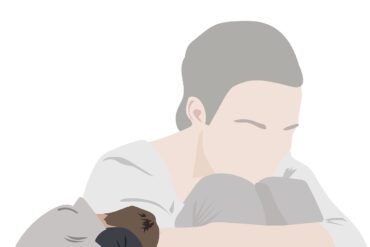Headache Types: Causes, Symptoms, and Treatments

Table of Contents
- Different Types of Headaches
- Common Causes of Headaches
- Recognizing Headache Symptoms
- Effective Treatments for Headaches
- Prevention and Management Techniques
Different Types of Headaches
Headaches are one of the most common medical complaints, affecting people of all ages. They can be caused by various factors, including stress, tension, and underlying health conditions. Identifying the type of headache is essential for determining the appropriate treatment. Here are some of the most common types of headaches:
- Tension Headaches: Also known as stress headaches, tension headaches cause mild to moderate pain and a sensation of tightness or pressure around the head. They are often triggered by stress, anxiety, lack of sleep, or poor posture.
- Migraine Headaches: Migraines are severe and recurrent headaches that can cause intense throbbing or pulsating pain, usually on one side of the head. Migraines are often accompanied by other symptoms such as nausea, vomiting, and sensitivity to light and sound.
- Cluster Headaches: Cluster headaches are excruciatingly painful headaches that occur in cycles or clusters, typically on one side of the head. They are often accompanied by eye redness, watery eyes, and nasal congestion. Cluster headaches are rare but extremely intense.
- Sinus Headaches: Sinus headaches are caused by inflammation or infection in the sinuses, resulting in pain around the cheeks, forehead, and nose. They are often accompanied by symptoms such as nasal congestion, facial pressure, and fever.
- Hormonal Headaches: Hormonal fluctuations, particularly in women, can trigger headaches. These headaches are often associated with the menstrual cycle, pregnancy, or the use of hormonal contraceptives.
- Rebound Headaches: Rebound headaches occur as a result of overuse of pain medications for treating headaches. When painkillers are taken frequently, they can actually worsen the headache and lead to a vicious cycle of medication dependence.
It is advised to consult a healthcare professional for a proper diagnosis and personalized treatment plan. Treatment options for headaches vary depending on the type and severity but may include lifestyle modifications, stress reduction techniques, medications, and other therapies such as acupuncture or physical therapy.
Remember, self-diagnosis should be avoided, especially when it comes to recurring or severe headaches. Proper medical assessment is crucial for identifying the underlying causes and finding appropriate solutions to manage and alleviate the pain.
Common Causes of Headaches
Headaches are a common ailment experienced by people of all ages. They can be mild or severe, and their causes can vary. Understanding the underlying cause of your headache is crucial for effective treatment. Here are some of the most common causes of headaches:
- Tension and Stress: One of the primary causes of headaches is tension and stress. Muscles in the neck, scalp, and jaw can become tight, leading to a tension headache. Stressful situations, poor posture, or anxiety can trigger these headaches.
- Migraine: Migraines are severe and throbbing headaches usually accompanied by nausea, vomiting, and sensitivity to light and sound. They can be triggered by various factors, including hormonal changes, certain foods, weather changes, or lack of sleep.
- Sinusitis: Sinusitis, an inflammation of the sinuses, often causes headaches. The blocked nasal passages and buildup of pressure can result in a dull, constant pain in the forehead or face.
- Dehydration: Inadequate hydration can lead to headaches as it affects the flow of blood and oxygen to the brain. Drinking an insufficient amount of water and excessive sweating can both cause dehydration headaches.
- Eye strain: Prolonged and intense use of digital devices or straining your eyes can cause tension headaches. This is commonly known as “computer eye strain.” Taking frequent breaks and using proper lighting can help alleviate these headaches.
- Dietary triggers: Certain foods and beverages can trigger headaches in susceptible individuals. Common culprits include caffeine, chocolate, aged cheeses, alcohol, artificial sweeteners, and processed foods. Identifying and avoiding these triggers can minimize the occurrence of headaches.
- Sleep disorders: Lack of quality sleep, sleep apnea, or irregular sleep patterns can contribute to frequent headaches. Establishing a consistent sleep routine and creating a comfortable sleep environment can be beneficial.
It’s important to keep track of your headache patterns and triggers to effectively manage them. If headaches persist or worsen, consulting with a healthcare professional is advisable for proper diagnosis and treatment. Remember, proper self-care, stress management, and a healthy lifestyle can significantly reduce the frequency and intensity of headaches.
Recognizing Headache Symptoms
Headaches can be a common ailment experienced by many individuals. They can range from mild discomfort to severe pain, and understanding the symptoms can help in identifying the type of headache and appropriate treatment. Here are some common symptoms to recognize different types of headaches:
- Tension headaches: These are the most common type of headaches. Symptoms include a dull, aching pain that wraps around the head, often accompanied by muscle tension in the neck and shoulders.
- Migraines: Migraines are typically characterized by intense, throbbing pain, often on one side of the head. Symptoms can also include nausea, vomiting, sensitivity to light or sound, and visual disturbances known as auras.
- Cluster headaches: Cluster headaches are rare but extremely painful. They occur in cycles or clusters, with recurring intense pain focused around one eye. Other symptoms may include redness and tearing of the eye, stuffy or runny nose, and restlessness.
- Sinus headaches: Sinus headaches often accompany sinusitis or inflammation of the sinus cavities. Symptoms include deep, constant pain in the forehead, cheekbones, or bridge of the nose, alongside nasal congestion and discharge.
- Hormonal headaches: Hormonal changes in women, such as during menstruation, pregnancy, or menopause, can trigger headaches. These headaches often occur before or during the hormonal changes and may be accompanied by other symptoms like mood swings or fatigue.
If you frequently experience severe headaches or if your headaches worsen over time, it is advisable to consult a healthcare professional to rule out any underlying causes or potential health concerns. Proper identification of the headache type and associated symptoms can lead to more effective treatments and management techniques. Remember, everyone is unique, and triggers for headaches can vary. Pay attention to your body, keep a headache diary tracking potential triggers, and seek medical guidance for proper diagnosis and personalized treatment plans.
Effective Treatments for Headaches
When it comes to treating headaches, it is crucial to understand the specific type of headache you are experiencing. While some headaches can be managed with simple remedies, others may require more specialized treatments. Here are some effective treatments for different types of headaches:
Tension Headaches:
- Over-the-counter pain relievers such as ibuprofen, acetaminophen, or aspirin can provide temporary relief.
- Applying a heating pad or cold compress to the affected area can help relax tense muscles and reduce pain.
- Engaging in stress-reducing activities like yoga, meditation, or deep breathing exercises.
- Improving your posture and ergonomics, especially if tension headaches are triggered by poor posture or muscle strain.
Migraine Headaches:
- Prescription medications specifically designed to treat migraines, such as triptans or ergots.
- Over-the-counter pain relievers like ibuprofen or aspirin can be helpful for mild migraines.
- A quiet, dark room to rest in when experiencing a migraine attack.
- Identifying and avoiding triggers such as certain foods, stress, or hormonal changes.
- Keeping a headache diary to track symptoms and potential triggers for effective management.
Cluster Headaches:
- Sumatriptan injections or nasal sprays, often prescribed by doctors for immediate relief.
- Inhaling pure oxygen through a mask, which can help alleviate cluster headache symptoms.
- Avoiding alcohol and cigarettes, as they are common triggers for cluster headaches.
- Sticking to a regular sleep schedule and establishing a relaxing bedtime routine.
It is important to note that these treatments may vary in effectiveness for each individual. Consulting with a healthcare professional to receive a proper diagnosis and personalized treatment plan is essential for optimal headache relief. Additionally, adopting a healthy lifestyle including regular exercise, sufficient sleep, and stress management techniques can significantly reduce the frequency and severity of headaches.
Prevention and Management Techniques
Headaches can vary in type, severity, and duration. While it’s important to identify the underlying causes and symptoms of different headache types, it is equally crucial to know effective prevention and management techniques. Here are some strategies you can employ to alleviate and potentially avoid headaches:
- Maintain a regular sleep pattern: Consistency in your sleep schedule can help prevent headaches caused by sleep deprivation or irregular sleeping patterns.
- Manage stress levels: High stress and tension can trigger headaches. Engaging in relaxation techniques like deep breathing exercises, meditation, or yoga can help reduce stress and prevent headaches.
- Stay hydrated: Dehydration can often lead to headaches. Make sure to drink plenty of water throughout the day to stay adequately hydrated.
- Adopt a healthy diet: Certain foods and beverages, such as caffeine, alcohol, processed foods, and those high in sugar, can trigger headaches. Maintaining a nutritious diet filled with fruits, vegetables, whole grains, and lean proteins can reduce the frequency of headaches.
- Exercise regularly: Engaging in physical activity releases endorphins, which act as natural pain relievers. Regular exercise can also improve blood circulation, reduce stress, and prevent headaches.
- Avoid triggers: Identify and avoid any factors that are known to trigger your headaches. Common triggers include bright lights, loud sounds, strong smells, and certain foods.
- Practice proper ergonomics: Maintaining good posture and ensuring an ergonomic work environment can help prevent tension headaches caused by poor posture or prolonged sitting.
- Consider alternative therapies: Techniques such as acupuncture, massage therapy, and biofeedback have shown promising results in managing and preventing various types of headaches.
- Consult a healthcare professional: If your headaches persist or become more severe, it is essential to seek medical advice. A healthcare professional can provide a proper diagnosis and suggest appropriate treatments or medications if necessary.
Utilizing these prevention and management techniques can make a significant difference in managing headaches effectively. However, it’s essential to remember that every individual’s experience with headaches may differ, and it may require being patient and trying different strategies to find the most effective solution for you.


























